These days, telling people that I am partially deaf feels like an admission of sorts. Beyond that, it’s a conversation I am growing to dread – being met with a barrage of patronising and needlessly sympathetic looks of sheer pity is an incredibly tiring affair. People mean well, but being told that you are ‘brave’ or ‘inspiring’ is not a compliment when you are simply living your life in the only way that you can. Do people really expect me to roll over and expire just because I can’t hear the glockenspiel in Radiohead’s No Surprises? Is it really that inspiring to get up and carry on with my day when there isn’t really any alternative?
A big part of this is the borderline phobic opinion that the general public holds towards the deaf. A driving force behind that fear, I suspect, is down to a lack of experience to deaf communities and communicating with the deaf. I’ve seen it before: the dread glazing over the eyes of a hearing person upon learning that someone stood before them is profoundly deaf, followed by a flustered panic and raised voices. Just in case you needed reminding… shouting at a (profoundly) deaf person isn’t going to magically induce an ability to hear. This breakdown in communication isn’t inherently the fault of an individual – especially given that the UK education system fails to acknowledge deaf people on the general syllabus – but the public psyche here instantly alienates anyone beyond what we’ve curated as the ‘norm’. Astonishingly, 1 in 6 of the UK population is affected by hearing loss, and yet we still struggle as a nation to make reasonable adjustments that could be achieved with simplicity.
Live closed captioning in meetings, reliable subtitles on video content, and sign language interpreters are all measures that can easily be put into place, and yet it seems we still struggle to get that right. This week, popular ITV programme Love Island made a return to our screens, this time featuring contestant Tasha Ghouri, who was born without hearing and uses a cochlear implant to distinguish sounds. Whilst it’s great to finally see some deaf representation in mainstream media, especially following the success of Rose Ayling-Ellis in last year’s series of Strictly Come Dancing, it sadly comes as no surprise that the programme remained inaccessible to many. Sparking interest within the deaf community, many new viewers tuned into the show to observe how Tasha’s hearing loss would be addressed, only to find that in the browser streaming service provided by ITV, subtitles and audio descriptions were unavailable. It further solidifies the upsetting fact that oftentimes, performative gestures can be made without any accompanying active change to benefit the communities that are supposedly being represented and accounted for.
Perhaps as upsetting as the lack of accommodations made available is the public reaction after representation like this happens. Tasha made a speech to her fellow Love Island contestants in the opening episode, addressing her hearing loss. In private interviews afterwards, the islanders commended her ‘bravery’ and how ‘inspirational’ she was. I appreciate that this is all incredibly well-meaning, but at the same time, it’s frustrating to see the way that deafness and hearing impairments are treated as some sort of insurmountable feat. Realistically speaking, there are definitely difficulties that come as a result of hearing loss, but these are the same difficulties that deaf people repeatedly overcome despite there being solutions available that aren’t implemented nearly enough. Overcoming these things with a triumphant attitude is definitely commendable, but why are there so many barriers in the first place?
Even with the efforts of Tasha Ghouri and Rose Ayling-Ellis considered, it should not rest on the shoulders of deaf individuals to advocate for deaf awareness. It should already exist in the public consciousness without individual people having to put themselves out there as the face of hearing loss – the same can be said about any disability. Deaf and disabled people do not owe you advocacy, and it is not down to individuals to educate people on the matter either. Some people may not mind advocating for these issues, but it should not be an expectation.
A lot of this could be avoided if the education system addressed deafness and how to communicate with people who suffer from hearing loss. If very basic BSL skills were taught in schools, especially from a young age, it would immediately break down the social barrier that exists between the hearing and the deaf, and destigmatise deafness a great deal. That initial breaking of the ice can act as a fantastic gateway to explore different means of communication, specifically non-verbal communication, and create a general sense of awareness of how to communicate with the deaf without othering them. I believe that proper education around deafness has a lot to answer for in terms of the public perception of hearing loss, and if properly implemented, could revolutionise the way deaf people feel in a society currently very much geared towards the hearing. If you pay attention, you’ll quickly notice that the deaf community is incredibly tight-knit, and oftentimes deaf people will avoid conversing with hearing people through fear of being mocked or misunderstood.
A great example of this can be seen in the latest season of Channel 4’s Hunted, featuring a pair of profoundly deaf contestants, James and Nathan. The pair set out to evade capture from the UK’s toughest intelligence forces and prove to the population that deaf people aren’t stupid or dumb, as they are often perceived. The third episode of the series saw James afraid to approach members of the public for help, the way other contestants would without issue, as he was used to being tormented for the way that his voice sounds. These are the sort of issues that could be resolved with a wider education of deafness towards the general population.
According to Hearing Link Services UK, 68% of affected people have reported feeling isolated at work due to their hearing loss, and 41% retired early due to the impact of their hearing loss and struggles with communication at work. This is something I was incredibly saddened to learn, as someone who has had similar experiences in the past – my hearing loss makes it incredibly difficult to follow group conversations, as I rely heavily on lipreading. This has meant that I have missed out on crucial information previously, but more dishearteningly, I have laughed along to jokes that I didn’t hear, and commiserated colleagues on unfortunate circumstances that I didn’t quite catch. I have smiled and I have nodded politely, all whilst hoping for the best, on so many occasions because I have been afraid to ask someone to repeat themselves for a third time in a crowded room. I have tolerated the sinking feeling of being told “oh, it doesn’t matter” when I didn’t hear something, and it’s something I would not wish on anyone. I have the luxury of being able to function on verbal communication, all the while implementing lipreading skills and acquiring a fantastic knack for filling in the gaps, but it is incredibly isolating all the while.
So, with all of that considered, what is the best way to communicate with a deaf person? Allow me to begin by saying that everyone is different, and hearing loss takes many different forms and spans in severity. Personally, as someone who is hard of hearing, I encourage people to face me when they talk to me, avoid covering their face, and speak clearly. Don’t raise your voice unless asked to, be patient in repeating things (it’s no more fun asking three times than it is having to repeat yourself three times, I promise), and above all, just ask. All of this allows for smooth communication, makes it easier for me to lipread if someone’s voice becomes lost in a crowd, and creates an open dialogue surrounding accessibility needs. Also, whilst we’re here, please don’t touch or tap or grab anyone without their consent, regardless of hearing ability. You’d be surprised how often it happens.
To summarise, being deaf does not have to be an obstacle. With the right education and accessibility needs in place, those with hearing loss can lead a totally functional life without communication barriers, or sacrifices made at the detriment of the deaf. I urge you to take some time to familiarise yourself with basic sign language skills, such as greetings, the alphabet, and directions. There are a wealth of resources available online for free, or alternatively, paid introductory courses, and level one courses are also a great option to help you on your way to making the world a better place for the deaf.

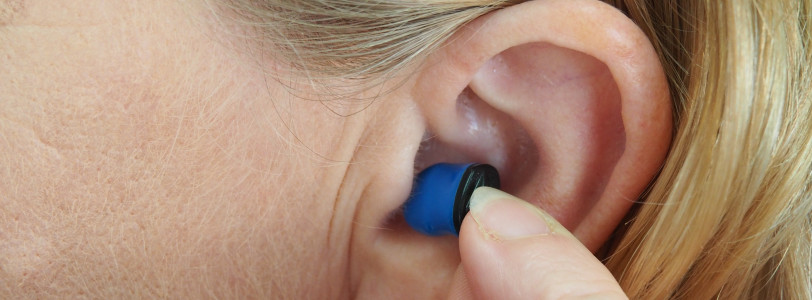
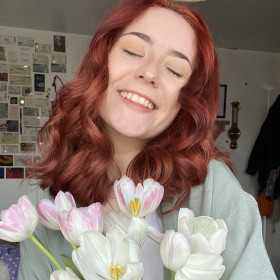
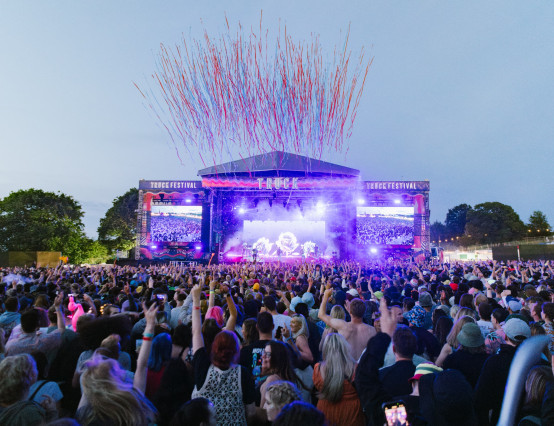
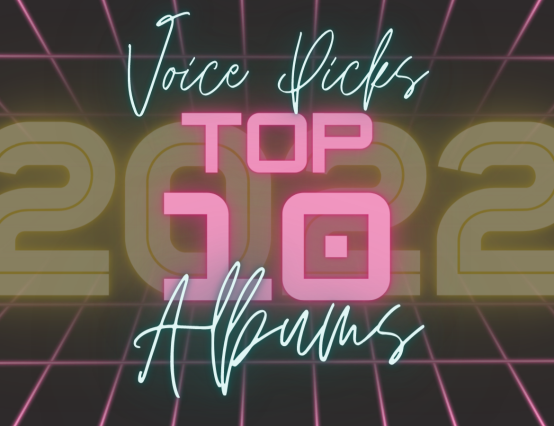
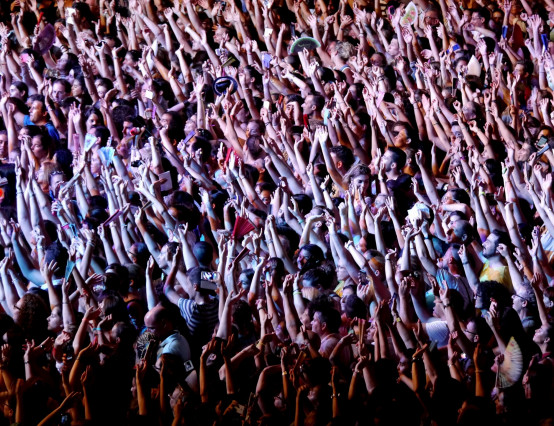



0 Comments